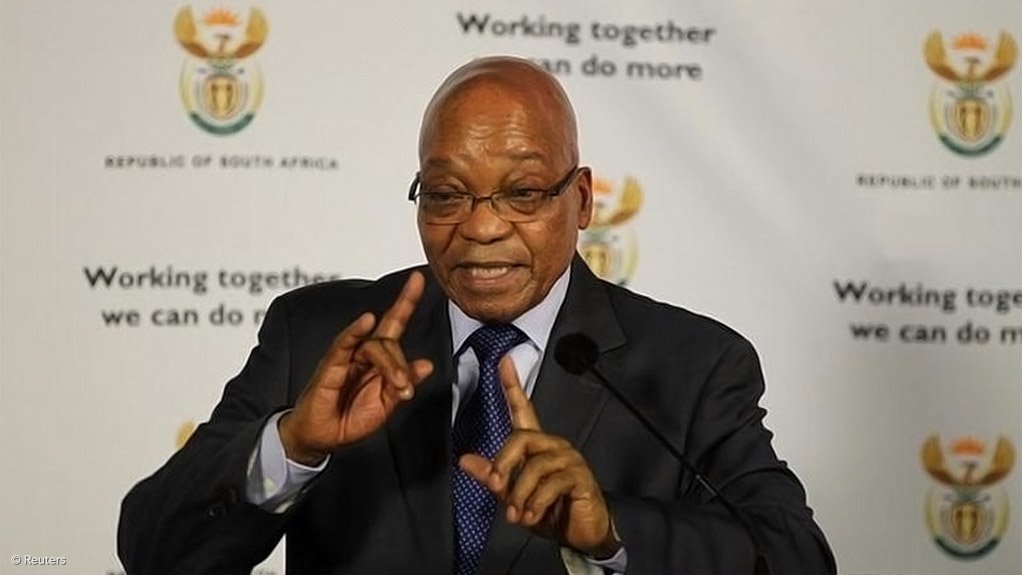A high-level delegation of government representatives, led by President Jacob Zuma, will this week attend a series of events organised by the Open Government Partnership (OGP), scheduled to take place on the margins of the sixty-ninth United Nations General Assembly, in New York.
As South Africa's special envoy to the OGP, Public Service and Administration Deputy Minister Ayanda Dlodlo would participate in a series of engagements, which would include a high-level event for heads of State on Wednesday, marking the third anniversary of the partnership.
South Africa would assume the position of co-chair of the OGP Steering Committee at this event, after which it would occupy the role of lead chair from September.
The OGP provided an international forum for dialogue, as well as the sharing of ideas and experience among governments, civil society organisations and the private sector, all of which contributed to the common pursuit of open government.
It was a multilateral initiative aimed at securing concrete commitments from governments to promote transparency, increase civic participation, fight corruption, and harness new technologies to make governments more open, effective, and accountable.
The partnership was formally launched in September 2011, when eight founding governments – Brazil, Indonesia, Mexico, Norway, Philippines, South Africa, the UK and the US – endorsed an Open Government Declaration (OGD), and published national OGP action plans with specific open government reform commitments.
In the three years since its launch, the grouping has grown to 64 countries, with hundreds of civil society organisations participating in the OGP process at the country-level.
OGP countries represented one-third of the world's population and had made more than 1 000 open government reform commitments.
To become a member, countries must first satisfy four basic eligibility criteria: fiscal transparency, access to information legislation, disclosure related to elected or senior public officials and citizen engagement.
The Ministry for Public Service and Administration said in a statement on Tuesday that, in line with this criteria, South Africa boasted “world-acclaimed fiscal transparency”, consistently ranking first or second in the Open Budget Index.
The country was also represented in the International Accounting Standards Board as of July.
Participating countries must also embrace a high-level OGD, work with civil society to develop and implement a country action plan and commit to independent reporting on their progress going forward.
In compliance with the OGP requirements, South Africa developed a Country Action Plan, identifying seven commitments as concrete steps that government would embark on towards addressing service delivery.
A Second Country Action Plan had already been submitted and the principle of progressive implementation adopted, which meant that the developmental objectives would be attained as part of delivery against the National Development Plan.
“South Africa’s Country Action Plan for 2013/15 commits to developing and implementing an accountability and consequences management framework for public servants; establishing service delivery improvement forums; mainstreaming citizen participation in the public sector; and developing an integrated and publicly-accountable environmental management portal.
“It will also look to develop an online crowdsourcing tool that will allow the public to submit data on protected areas and conservation areas, implement the Schools Connectivity Project and expand human settlement projects,” outlined the Ministry.
EMAIL THIS ARTICLE SAVE THIS ARTICLE
To subscribe email subscriptions@creamermedia.co.za or click here
To advertise email advertising@creamermedia.co.za or click here











